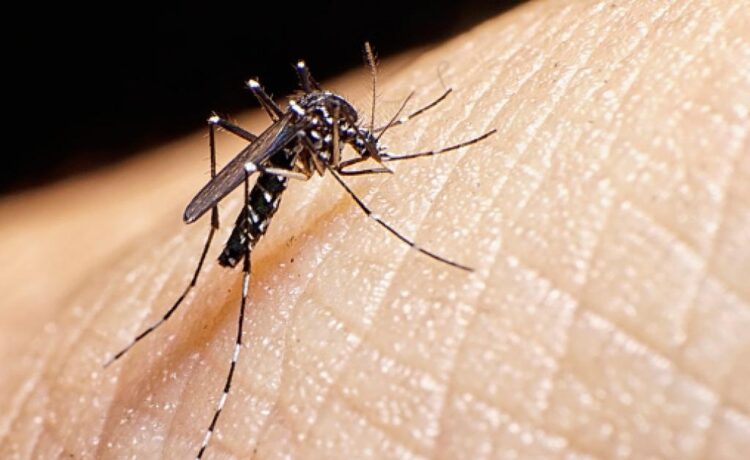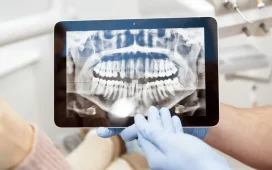Dengue fever occurs every year in tropical countries such as in Malaysia. Dengue fever cases often spiked during rainy seasons or after floods. Dengue fever is an illness caused by transmission of dengue virus. You probably already know that dengue virus comes from Aedes mosquitoes but do you know that only female mosquitoes are the only ones capable of infecting humans through its bites? Furthermore, only infected female mosquitoes are the ones able to infect humans. A mosquito is said to be infected when it bites a human with a circulating dengue virus inside her or his body. The infected mosquitoes will then spread the dengue virus through bites into other humans by releasing the dengue virus from the mosquitoes’ bodies. The vicious cycle makes dengue fever one of the most rapid mosquito-borne diseases.
Some may ask if there is any other way dengue fever can be spread such as through saliva. Dengue fever can never be spread through saliva. This is because of the nature of the dengue virus itself only able to exist within the blood system. However, in rare cases, transmission of dengue virus is possible through exposure to infected blood, organs or other tissues such as bone marrow. This is especially true when the dengue virus is highest within the first 7 days after a person is infected by the virus. Hence, transmission of dengue virus through saliva, respiratory droplets such as from sneezing and sexual contacts is impossible unless blood is involved.
It is important to pay close attention to symptoms of dengue fever or when there are cases of dengue within the neighbourhood area. Common symptoms include high grade fever that last for 2 to 7 days and other symptoms such as muscle pain (myalgia), joint pain (arthralgia), headaches accompanied with pain behind the eyes (retro-orbital headaches), skin rash, nausea, vomiting and swollen glands. Whenever such symptoms are presented, he or she should seek medical advice. This is because a person’s fever may drop and symptoms seem to disappear on the 3rd to 7th days after the first symptom is presented. While it may seem a patient is alright, this in fact can turn to be a life-threatening event in a few hours to come since these are signs of a critical phase. Critical phase is where most patients face complications and even death. Critical phase lasts for 24 to 48 hours.
Thus, when you or someone you love experiences dengue symptoms, it is best to get medical advice by visiting a healthcare facility. Should there be any warning signs such as severe sudden abdominal pain, vomiting blood, presence of blood in stool, bleeding nose, bleeding gums, breathing difficulty, fatigue or persistent vomiting more than 3 times in 24 hours, a person with any of these signs should seek immediate medical advice by visiting the emergency room. This could be signs of an ongoing critical phase.
To diagnose a person with dengue fever is not enough with history of exposure to dengue virus and symptoms of dengue fever. In most cases, doctors will run blood tests, specifically antibody tests such as IgM, IgG and NS1 tests to detect dengue antibodies. Antibody tests help to detect antibodies that have been produced by the human body which signifies that the body is attempting to eliminate the dengue virus. NS1 test is usually recommended for patients presenting with symptoms within the first 3 to 5 days as it is more sensitive in detecting the dengue virus during those days. IgM and IgG antibody test is the common test to detect dengue virus which can differentiate if a person is currently facing dengue infection for the first time or not. The importance of knowing if the person may actually be infected by dengue virus before is because it could lead to high risk for severe dengue such as dengue shock syndrome and dengue haemorrhagic fever.
How come a person that has been infected by dengue virus before may have a high possibility of severe dengue? Shouldn’t a person be immune to dengue virus once they have gotten infected before? This is not the case with dengue infection. Dengue virus exists in 4 serotypes, which are DENV-1, DENV-2, DENV-3 and DENV-4. A person may be infected by one of the serotypes before and then recover from it. After recovery, the body will only be producing antibodies against that one serotype. This means that a person still has the chance to be infected by the other 3 serotypes in the future and there is no antibody that can fight against that. On the contrary, when a person is infected with different serotypes compared to the previous one, it could lead to severe dengue due to the cross-reaction immune reaction. The most dangerous serotypes are the DENV-2 since it is typically associated with severe dengue.
In essence, dengue fever is only spread through mosquito bites and possibly through blood. It is necessary to get medical advice when dengue fever symptoms are presented so that healthcare providers can make observations and provide treatments or support. A person suspected of dengue fever should adhere to medical professional’s advice whenever they are asked to stay in the hospital for the next 24 to 48 hours. There is no specific medicine for dengue fever. Treatments provided aim to support patients’ health and to improve symptoms.















